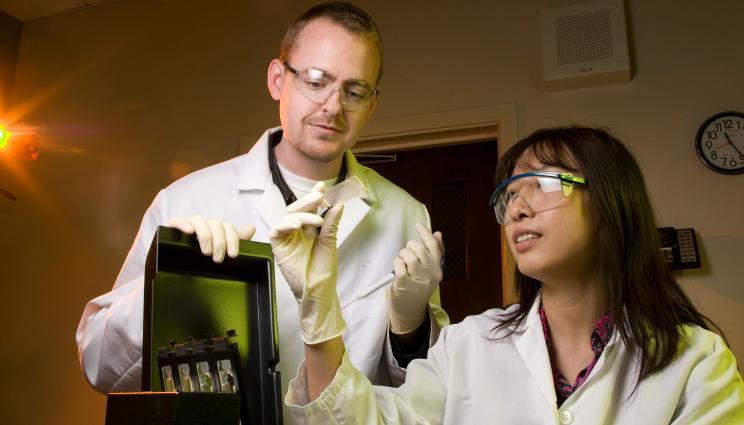Single-cell technologies have revolutionized the sequencing field. This technique allows for high sequencing resolution of individual cells within a population of cells, resulting in a better understanding of the function of an individual cell. The traditional methods of cell sequencing involve examining the aggregated effects of the entire population of cells, missing important trends, and signaling within a single cell. Single-cell technology is specifically useful in screening populations of cells for rare mutations. In addition, it can be used for the diagnosis and genotyping of human disease. To facilitate single-cell analysis, microfluidic droplets are useful to contain single cells in order to isolate and characterize each cell. The following technology improves the use of microfluidic droplets for single-cell analysis.
This device allows for observation of single cells encapsulated in droplets and provide the ability to recover droplets containing a cell of interest. This system provides the unique capability to monitor droplet contents from a few minutes to hours and overcome the limitations of the fluorescence activated cell sorting (FACS) in the purification of cell populations. The ability of this technology, to retrieve individual droplets, allows for a wide variety of downstream analyses, such as PCR, sequencing, chromatography and mass spectrometry (e.g. LC-MS or GC-MS), or other analytical techniques. Individual droplets of interest may be released from the array using a variety of modalities such as dielectrophoresis, actuation of fluidic, or a combination of several modalities.
The figure shows an example of a system of conducting single-cell analysis.
- Allows for observation of single cells encapsulated in droplets
- Monitor cells in individual droplets from a few minutes to hours
- Ability to recover droplets containing a cell of interest for single-cell analysis
- Downstream analyses of the droplet content such as PCR, sequencing, chromatography and mass spectrometry (LC-MS or GC-MS), or other analytical techniques
- Genetic screening for drug discovery
- Genome sequencing
- Food & beverage safety testing
- Biomedical diagnostics
- Forensics analysis
- Identifying and tracking infectious diseases
- Flow cytometry and PCR processes
LLNL has obtained a patent (US Patent 10,718,004) covering this technology (LLNL Internal Case # IL-13108)


